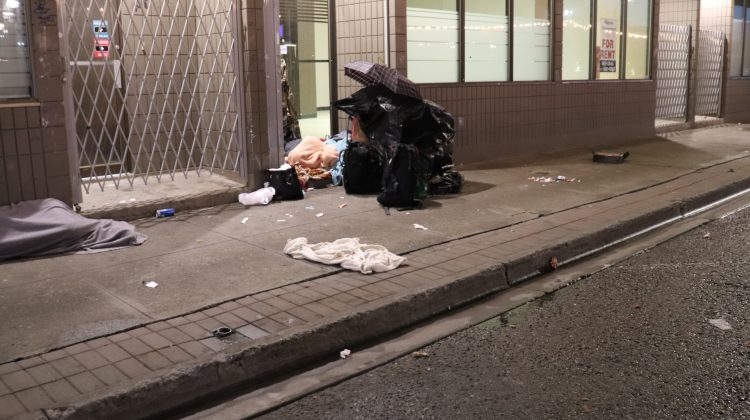Canada’s federal housing advocate is calling on all levels of government to establish a National Response Plan on encampments, including Moccasin Flats in Prince George.
The report initially called for an August 31st deadline to adopt such a plan that would include live saving measures such as ensuring those who live in encampments to have access to the basic necessities such as clean water, sanitation, food, heating and cooling as well as healthcare.
Marie-Josie Houle told Vista Radio we also need to stop shoe-horning some of our most vulnerable to stay long-term at homeless shelters.
“A lot of shelters don’t allow partners to be together and a lot of shelters don’t allow pets. They really do not meet the needs of people and a shelter is really only for emergencies that is short-lived. It’s not a home, and it is certainly not a solution.”
“If there is room (at a shelter) they are going to lose all of their items because they are going to be stored in lockers. They are going to be getting a mat and they will have access to showers but not all shelters are the same. In the mega-shelters people are often told to put the mat on the floor and sleep with 100 strangers.”
“In addition, there is often, not enough rooms for people to be in a shelter and yet when there is extreme cold coming people will stand in line and leave their possessions behind with a risk of it being gone when they return. They will often stand in line and be told maybe we have room for you, maybe we don’t.” added Houle.
She added situations like evictions either from a rental unit or an encampment often de-stabilizes people removing them from their support systems.
“It does cause them to lose their tools (if homeless) that they need to survive. If you are looking at everything people have with them in encampments, they are carefully curated items of survival.”
“When there are forced encampments, usually they are raided and everything is treated like garbage and we have heard about evictions increasing the trauma and the harm as well as the risks to people’s lives making them so much worse.”
“Tenants (in homes and rental units) not just need better protection but they also need access to justice because there are certain protections for tenants in place, especially around habitability and building conditions for example, but, do we have access to recourse when these things are violated? Do they know about their rights to access to tenure?.” added Houle.
Houle says in some cases, landlords are paying their tenants as much as $5000 to leave to do renovations.
“People will go $5000 that sounds pretty great to me but then they realize and comparable unit to what they had is about $1000 more per month than what they were paying and will not cover six months of additional rent.”
Houle’s top solution is to have adequate housing for all in society as well as the human rights of Indigenous peoples to be recognized and respected.
“Adequate housing has a legal definition and that includes affordability, habitability and being close to community resources, it includes portable drinking water and, for Indigenous folks, it needs to be culturally appropriate.”
“A human rights-based approach will create lasting change to solve homelessness because we know top-down approaches don’t work. They need to treat people with dignity and respect – doing that builds trust and it gets people to better options. The solution to homeless encampments, not just those in Prince George but across the country is adequate housing.” added Houle.
A link to the final report can be found here.
Something going on in the Prince George area you think people should know about?
Send us a news tip by emailing [email protected].







